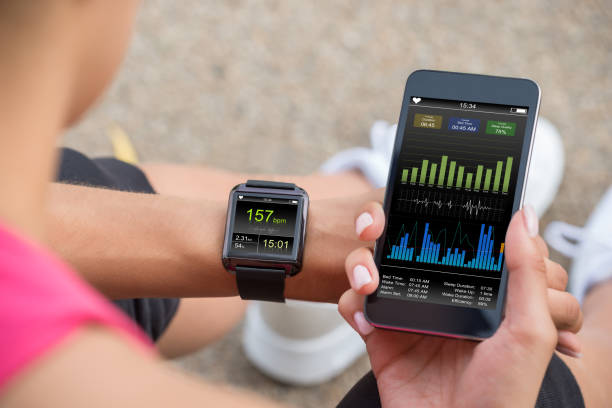The Ultimate Guide to Fitness Apps: Transforming Your Exercise Routine
In today's fast-paced world, maintaining a consistent workout routine can be challenging. Enter fitness apps – powerful tools that have revolutionized how we approach exercise and health. These digital companions offer personalized workouts, track progress, and provide motivation right at our fingertips. Whether you're a fitness enthusiast or just starting your journey, fitness apps can be game-changers in achieving your health goals.

How do fitness apps work?
Fitness apps utilize smartphone technology to deliver exercise routines, track physical activity, and monitor health metrics. They typically employ sensors in your device, such as accelerometers and GPS, to measure movement and location. Many apps also integrate with wearable devices for more accurate data collection. Users can input personal information like age, weight, and fitness goals, allowing the app to tailor recommendations and track progress over time.
What are the key features of popular fitness apps?
Most fitness apps offer a range of features designed to support users in their exercise journey. Common functionalities include:
-
Workout libraries with video demonstrations
-
Customizable exercise plans
-
Progress tracking and performance analytics
-
Integration with wearable devices and health platforms
-
Social sharing and community support
-
Nutrition tracking and meal planning
Advanced apps may also incorporate AI-driven coaching, live classes, and gamification elements to keep users engaged and motivated.
Can fitness apps replace a personal trainer?
While fitness apps offer many benefits, they can’t fully replace the personalized attention and expertise of a certified personal trainer. Apps provide convenience, accessibility, and cost-effectiveness, making them an excellent supplement to traditional training methods. However, they may lack the ability to correct form in real-time or address specific individual needs. For beginners or those with special health considerations, combining app usage with occasional in-person training sessions can be an ideal approach.
How effective are fitness apps in improving exercise habits?
Research suggests that fitness apps can significantly impact exercise adherence and outcomes. A study published in the Journal of Medical Internet Research found that app users increased their physical activity levels by an average of 2,000 steps per day. Apps that incorporate goal-setting, progress tracking, and social support features tend to be particularly effective in promoting long-term behavior change.
What are some innovative features in modern fitness apps?
The fitness app landscape is constantly evolving, with new technologies enhancing user experience and effectiveness. Some cutting-edge features include:
-
AI-powered form correction using smartphone cameras
-
Virtual reality workouts for immersive exercise experiences
-
Integration with smart home devices for seamless fitness routines
-
Personalized workout recommendations based on biometric data
-
Augmented reality features for guided exercises in real-world settings
These advancements are making fitness more accessible, engaging, and tailored to individual needs than ever before.
How do you choose the right fitness app for your needs?
Selecting the ideal fitness app depends on your goals, preferences, and budget. Here’s a comparison of some popular options to help you make an informed decision:
| App Name | Key Features | Cost Estimation |
|---|---|---|
| MyFitnessPal | Calorie tracking, extensive food database, community support | Free (Basic), $19.99/month (Premium) |
| Strava | GPS tracking for running/cycling, social features, challenges | Free (Basic), $7.99/month (Premium) |
| Nike Training Club | Diverse workout library, personalized plans, audio-guided runs | Free |
| Peloton | Live and on-demand classes, performance tracking, music integration | $12.99/month |
| Fitbody | Customized meal plans, workout videos, progress photos | $19.99/month |
Prices, rates, or cost estimates mentioned in this article are based on the latest available information but may change over time. Independent research is advised before making financial decisions.
When choosing a fitness app, consider factors such as your fitness level, preferred workout types, and desired features. Many apps offer free trials, allowing you to test their functionality before committing. Remember that the most expensive option isn’t always the best fit – focus on finding an app that aligns with your personal fitness journey and motivates you to stay active.
In conclusion, fitness apps have become powerful allies in our quest for better health and fitness. By leveraging technology to provide guidance, tracking, and motivation, these digital tools are making it easier than ever to maintain an active lifestyle. Whether you’re looking to lose weight, build muscle, or simply stay healthy, there’s likely a fitness app that can help you achieve your goals.
This article is for informational purposes only and should not be considered medical advice. Please consult a qualified healthcare professional for personalized guidance and treatment.
The shared information of this article is up-to-date as of the publishing date. For more up-to-date information, please conduct your own research.




